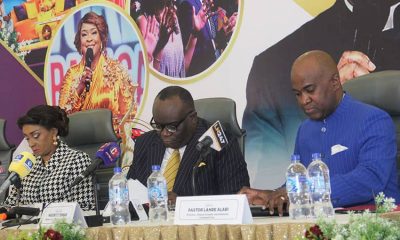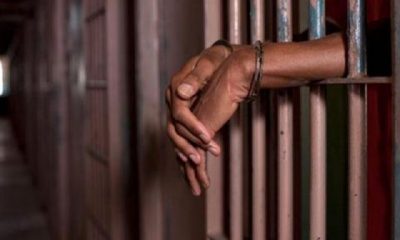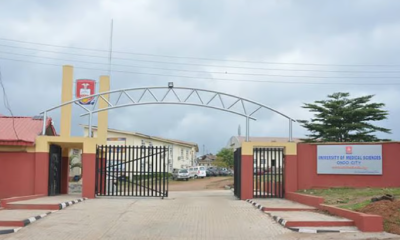News
Group decries governance failure, high number of streets girls in southeast
Published
3 years agoon
By
Olu Emmanuel
The Civil Rights Advocacy group, HUMAN RIGHTS WRITERS ASSOCIATION OF NIGERIA (HURIWA), has lamented what it calls the unprecedented huge numbers of children roaming the streets of Enugu, Owerri and Aba, and others in the southeast.
The group said it will write to the Senators and House of Representatives members from the South East of Nigeria on the need to bring up the issues of Child Poverty of South Easterners to the front burners of public discourse.
HURIWA condemned the systemic and systematic neglect of Child Poverty in Igbo speaking areas by policy makers and government officials in the central and state administration and the seeming lack of knowledge amongst international diplomats of the existence of hundreds of thousands of Street Children of South East extractions living in the streets of South East of Nigeria.
“We have just rounded up our advocacy campaigns in the South East of Nigeria and we concluded with a TOWNHALL MEETING in Enugu, the erstwhile regional capital of Eastern Nigeria on the theme of military and civilian relationships and how to promote greater dialogues and democratic conversations. However, our members have observed the sudden upsurge in the presence a huge numbers of Children looking obviously malnourished, abused, dehumanized and criminally exploited who are usually seen around traffic lights and are constantly running after motorists to beg for money, alms and for foods to eat. In Enugu alone, in a single night, we counted about 100 of such children some as young as three moving around the major roads in virtually all major traffic points. We had conversations with some of these kids and their experiences show that the South East of Nigeria is now actively broken down and is a society in search of rebuilding and mending up of the broken walls of economic prosperity, skills acquisitions, trading and the widespread deeply entrenched spirit of entrepreneurship for which the South East is known.
“From our investigations, these children are not foreigners neither are they from the far North. So, we wonder why all the interventionistic programmes for the eradication of Child Poverty introduced and implemented by the United Nations and the European Union are concentrated in the Northern Nigeria. It is a distorted perception for statisticians to continue to perpetuate the mathematical fraud that there are more poor children in the North than anywhere else. The practical and existential examples we saw on ground in Enugu, Owerri and Aba in Enugu State, Imo State and Abia State show that there are hundreds of thousands of very poor, neglected, abused, marginalized and dehumanized Children of South East extraction who beg and live on the streets with all the attendant risks and dangers to their lives just as these Children are often sexually abused and totally alienated and the political class in the South East of Nigeria simply are doing nothing to bring these issues into national discourse in the National Assembly and the mainstream media. What we have seen in the South East, coupled with the street children in the North and South West show that the new study by the Economist Intelligence Unit, EIU, that ranked Nigeria as the worst place for a baby born in 2013 is still fresh and indeed what the World’s Richest man Bill Gates said about Nigeria as the worst place for babies to born in 2020 tallies with the report done in 2013 by The Economist and from what we see on ground this critical human right violation of the rights of the Nigerian Children have not been addressed institutionally and programmatically,” HURIWA declared in a statement.
HURIWA recalled that the Economist Intelligence Unit, a sister company of The Economist, ranked Nigeria 80th out of the 80 countries considered for the study with a score of 4.74 out of 10, just below Kenya which scored 4.91 just as South Africa, at 53rd position, was the best placed African country with a score of 5.89.Four North African nations (Algeria, Egypt, Tunisia, and Morocco) as well as oil rich Angola were regarded as better places to bear children ahead of Nigeria. The study attempts to measure what will provide the best environment for the healthiest, safest, and most prosperous life in the coming years.
HURIWA also recalled that the quality-of-life index used in the survey was measured around key areas like crime, trust in public institutions, health of family life and government policies.
It also examined how happy citizens say they are as well other variables such as a forecast of income per head.
The study used the EIU’s 2030 economic forecasts, the year when children born in 2013 are expected to attain adulthood.
HURIWA through the National Coordinator Comrade Emmanuel Onwubiko and the National Media Affairs Director Miss Zainab Yusuf said there is the need to correct the wrong perception of prosperity of the South East of Nigeria because the reality is that due to lack of good governance and the high rates of government corruption amongst the governors of the South East of Nigeria and the poor representation of the zone by elected national and state parliamentarians, hundreds of thousands of Children are languishing in massive poverty, dehumanization and are subjected to all sorts of human rights violations including sexual and physical harassment and abuses and rapes if the most violent types.
The Rights group said it resolved at the Enugu TOWNHALL MEETING to hold a World Press conference on December 10th 2020 being the INTERNATIONAL HUMAN RIGHTS DAY to highlight the ordeals of these street children of South Extraction who are neglected both by their political leaders and from the INTERNATIONAL Community who are fed the erroneous impression that Child Poverty only exists in the North of Nigeria.
“We are calling on all the South East Senators, House of Representatives Members from the South East of Nigeria and the governors to tackle the growing social menace of street children of Igbo extraction in the East of Nigeria by introducing skills acquisitions training for single mothers and indigent women with kids so they are economically empowered to take care of their children and keep them away from the streets. The South East should introduce social welfare centers for these kids on the streets. We expect the State governors to keep children off the streets and in their schools by creating the enabling environment for conducive learning and by adequately feeding these children in line with the UNIVERSAL BASIC EDUCATION ACT of Nigeria which mandates governments of the States to educate their children of their States qualitatively and free of tuition charges up until their third year in high schools. The menace of street children of Igbo orientation is a challenge of governance “.
Trending

 Business7 days ago
Business7 days agoOn The Central Bank Of Nigeria’s Circular Relating To The Collection And Remittance Of The National Cybersecurity Levy

 Inspirational7 days ago
Inspirational7 days agoExcitement as Christ Embassy announces date for 2024 edition of Rhapathon with Pastor Chris

 Politics6 days ago
Politics6 days agoReactions as Tinubu appoints Emeka Woke, CEO, Ogun-Osun River Basin Dev Authority, after resignation from Fubara’s cabinet in Rivers

 Featured6 days ago
Featured6 days agoTinubu confers national honour on Awujale of Ijebu

 Business6 days ago
Business6 days agoNCDMB co-chair, Ekpo meets Exec Sec, pledges support for local content programmes

 Business1 week ago
Business1 week agoNaira depreciate further at official, parallel markets

 Latest6 days ago
Latest6 days agoOne shot as detained soldiers break out of ‘overcrowded cells’ to protest poor feeding

 Education6 days ago
Education6 days agoUNIMED dismisses Deputy VC over false allegations against management




